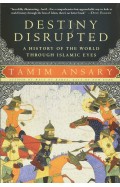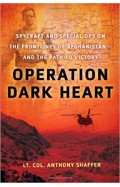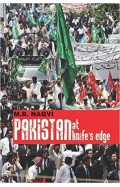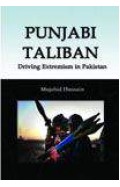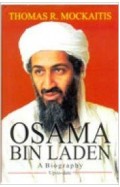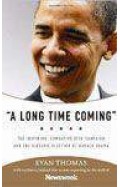Oath Betrayed: Torture, Medical Complicity, and the War on Terror
By: Steven H. Miles,M.D.
-
Rs 695.00
Due to constant currency fluctuation, prices are subject to change with or without notice.
The graphic photographs of U.S. military personnel grinning over abused Arab and Muslim prisoners shocked the world community. That the United States was systematically torturing inmates at prisons run by its military and civilian leaders divided the nation and brought deep shame to many. When Steven H. Miles, an expert in medical ethics and an advocate for human rights, learned of the neglect, mistreatment, and torture of prisoners at Abu Ghraib, Guantánamo Bay, and elsewhere, one of his first thoughts was: Where were the prison doctors while the abuses were taking place?
In Oath Betrayed, Miles explains the answer to this question. Not only were doctors, nurses, and medics silent while prisoners were abused; physicians and psychologists provided information that helped determine how much and what kind of mistreatment could be delivered to detainees during interrogation. Additionally, these harsh examinations were monitored by health professionals operating under the purview of the U.S. military.
Miles has based this book on meticulous research and a wealth of resources, including unprecedented eyewitness accounts from actual victims of prison abuse, and more than thirty-five thousand pages of documentation acquired through provisions of the Freedom of Information Act: army criminal investigations, FBI notes on debriefings of prisoners, autopsy reports, and prisoners medical records. These documents tell a story markedly different from the official version of the truth, revealing involvement at every level of government, from Secretary of Defense Donald Rumsfeld to the Pentagons senior health officials to prison health-care personnel.
Oath Betrayed is not a denunciation of American military policy or of war in general, but of a profound betrayal of traditions that have shaped the medical corps of the United States armed forces and of Americas abdication of its leadership role in international human rights. This book is a vital document that will both open minds and reinvigorate Americans understanding of why human rights matter, so that we can reaffirm and fortify the rules for international civil society.
The graphic photographs of U.S. military personnel grinning over abused Arab and Muslim prisoners shocked the world community. That the United States was systematically torturing inmates at prisons run by its military and civilian leaders divided the nation and brought deep shame to many. When Steven H. Miles, an expert in medical ethics and an advocate for human rights, learned of the neglect, mistreatment, and torture of prisoners at Abu Ghraib, Guantánamo Bay, and elsewhere, one of his first thoughts was: Where were the prison doctors while the abuses were taking place?
In Oath Betrayed, Miles explains the answer to this question. Not only were doctors, nurses, and medics silent while prisoners were abused; physicians and psychologists provided information that helped determine how much and what kind of mistreatment could be delivered to detainees during interrogation. Additionally, these harsh examinations were monitored by health professionals operating under the purview of the U.S. military.
Miles has based this book on meticulous research and a wealth of resources, including unprecedented eyewitness accounts from actual victims of prison abuse, and more than thirty-five thousand pages of documentation acquired through provisions of the Freedom of Information Act: army criminal investigations, FBI notes on debriefings of prisoners, autopsy reports, and prisoners medical records. These documents tell a story markedly different from the official version of the truth, revealing involvement at every level of government, from Secretary of Defense Donald Rumsfeld to the Pentagons senior health officials to prison health-care personnel.
Oath Betrayed is not a denunciation of American military policy or of war in general, but of a profound betrayal of traditions that have shaped the medical corps of the United States armed forces and of Americas abdication of its leadership role in international human rights. This book is a vital document that will both open minds and reinvigorate Americans understanding of why human rights matter, so that we can reaffirm and fortify the rules for international civil society.
Oath Betrayed Torture Medical Complicity and the War on Terror
By: Steven H. Miles,M.D.
Rs 632.00 Rs 1,580.00 Ex Tax :Rs 632.00
Oath Betrayed: Torture, Medical Complicity, and the War on Terror
By: Steven H. Miles,M.D.
Rs 695.00 Ex Tax :Rs 695.00
Zubin Mehta: A Musical Journey (An Authorized Biography)
By: VOID - Bakhtiar K. Dadabhoy
Rs 892.50 Rs 1,050.00 Ex Tax :Rs 892.50
Destiny Disrupted A History Of The World Through Islamic Eyes
By: Tamim Ansary
Rs 5,035.50 Rs 5,595.00 Ex Tax :Rs 5,035.50
False Choices The Faux Feminism of Hillary Rodham Clinton
By: Liza Featherstone
Rs 797.50 Rs 1,595.00 Ex Tax :Rs 797.50
Myths Illusions and Peace: Finding a New Direction for America in the Middle East
By: Dennis Ross
Rs 766.50 Rs 1,095.00 Ex Tax :Rs 766.50
Operation Dark Heart: Spycraft And Special Ops On The Frontlines Of Afghanistan And The Path To Victory
By: Anthony Shaffer
Rs 1,697.50 Rs 3,395.00 Ex Tax :Rs 1,697.50
Anna Hazare: The Face Of Indias Fight Against Corruption
By: Pradeep Thakur
Rs 255.00 Rs 300.00 Ex Tax :Rs 255.00
How To Win A Cosmic War God Globalization And The End Of War
By: Reza Aslan
Rs 625.50 Rs 695.00 Ex Tax :Rs 625.50
A Long Time Comming: The Inspiring Combative 2008 Campaign And
By: Evan Thomas
Rs 597.50 Rs 1,195.00 Ex Tax :Rs 597.50
Destiny Disrupted A History Of The World Through Islamic Eyes
By: Tamim Ansary
Rs 5,035.50 Rs 5,595.00 Ex Tax :Rs 5,035.50
False Choices The Faux Feminism of Hillary Rodham Clinton
By: Liza Featherstone
Rs 797.50 Rs 1,595.00 Ex Tax :Rs 797.50
Zubin Mehta: A Musical Journey (An Authorized Biography)
By: VOID - Bakhtiar K. Dadabhoy
Rs 892.50 Rs 1,050.00 Ex Tax :Rs 892.50
Oath Betrayed Torture Medical Complicity and the War on Terror
By: Steven H. Miles,M.D.
Rs 632.00 Rs 1,580.00 Ex Tax :Rs 632.00
Oath Betrayed: Torture, Medical Complicity, and the War on Terror
By: Steven H. Miles,M.D.
Rs 695.00 Ex Tax :Rs 695.00
Destiny Disrupted A History Of The World Through Islamic Eyes
By: Tamim Ansary
Rs 5,035.50 Rs 5,595.00 Ex Tax :Rs 5,035.50
False Choices The Faux Feminism of Hillary Rodham Clinton
By: Liza Featherstone
Rs 797.50 Rs 1,595.00 Ex Tax :Rs 797.50












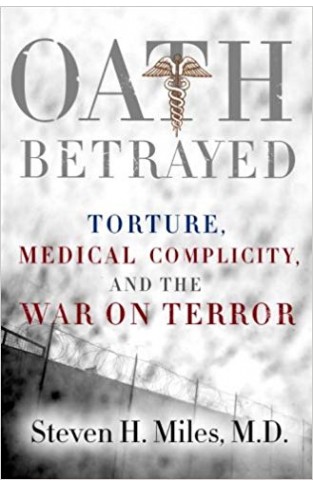
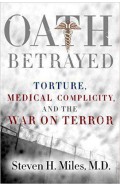
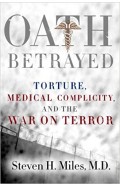
-120x187.jpg?q6)






